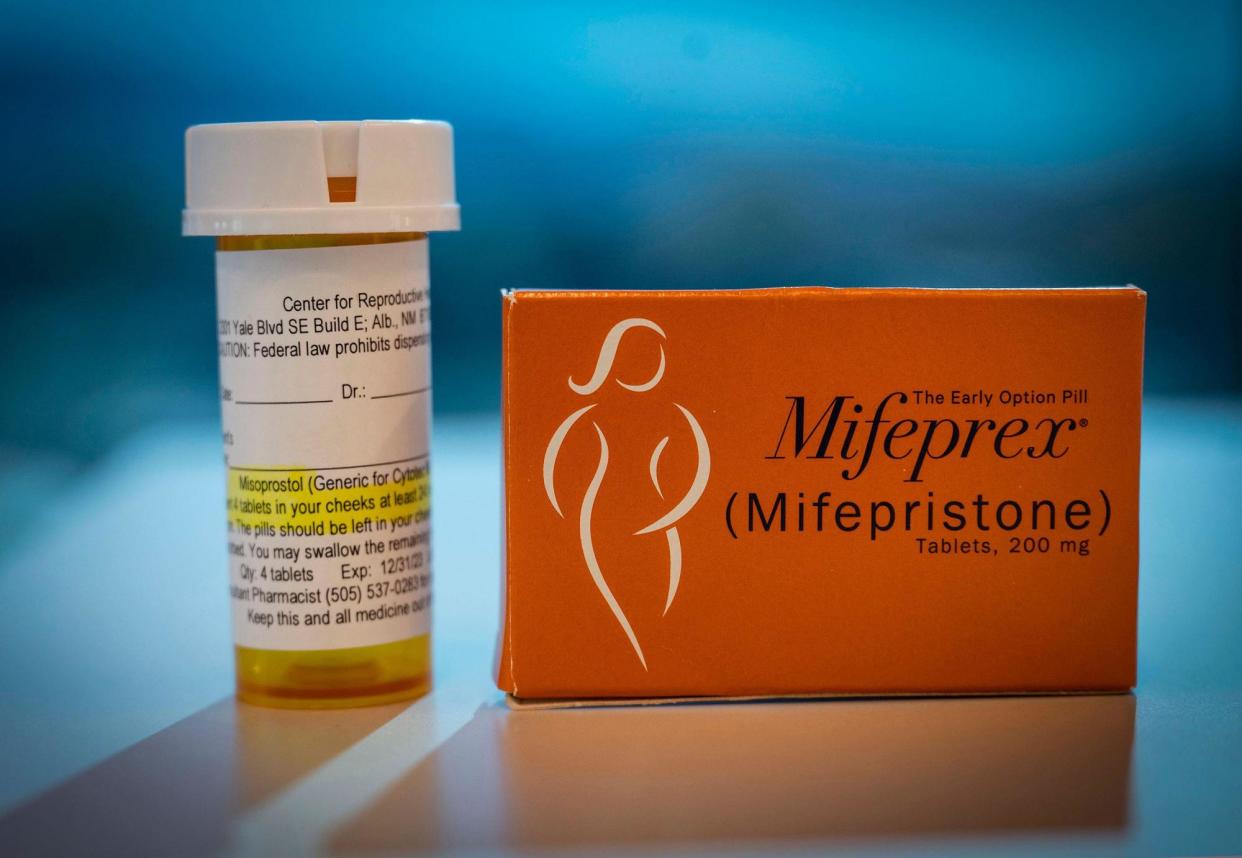What is the abortion case in front of the US supreme court right now?

Less than two years after it overturned Roe v Wade and ended the national right to abortion, the US supreme court is back on the frontlines of the American abortion wars.
On Tuesday, the court heard oral arguments in one of the most highly watched cases of the session, which could dramatically curtail access to mifepristone, a drug typically used in medication abortions. The court is reviewing decisions made by the Food and Drug Administration (FDA) to loosen restrictions on the drug, such as allowing non-physicians to prescribe it, as well as letting providers prescribe it through telehealth rather than in-person appointments.
Any decision to restrict mifepristone will affect everyone in the US, not only those who live in the 16 states that have banned nearly all abortions. This case could also have wide-ranging consequences for the FDA’s future decision-making.
A decision from the nation’s highest court in the case will probably arrive by summer 2024.
What is mifepristone?
Medication abortions typically use two drugs, mifepristone and misoprostol, taken several hours apart. While mifepristone generally stops a pregnancy from progressing, misoprostol makes the uterus cramp, bleed and empty out – similar to a miscarriage. Medication abortions now account for 63% of all US abortions.
The plaintiffs in the case claim that mifepristone, which was first approved by the FDA for use in abortions in 2000, is unsafe and understudied. However, more than 100 studies conducted across three decades and more than two dozen countries have found that mifepristone is safe, a New York Times analysis found. The World Health Organization has also outlined a protocol by which women can use mifepristone to safely “self-manage” their own abortions.
What has happened in the case so far?
The case was first filed in late 2022, just months after the supreme court overturned Roe, by a group called the Alliance for Hippocratic Medicine, which includes doctors who oppose abortion. It is being represented in court by the Alliance Defending Freedom, a powerhouse Christian law firm that champions conservative causes such as ending abortion rights.
The ADF filed the case in federal court in Amarillo, Texas, which guaranteed that only one judge would oversee it: the US district judge Matthew Kacsmaryk, a conservative appointed by the former president Donald Trump. In April 2023, Kacsmaryk ruled to suspend the FDA’s approval of mifepristone, peppering his decision with rhetoric widely used by the anti-abortion movement.
In August last year, the conservative fifth circuit court of appeals narrowed Kacsmaryk’s ruling. The court found that it was too late to completely suspend the FDA’s approval of mifepristone, but reversed more recent measures that the FDA had taken to expand access to mifepristone, including allowing non-physicians to prescribe the drug and eliminating a requirement that people pick up mifepristone in person.
The FDA appealed that ruling up to the supreme court, as did Danco Laboratories, which manufactures mifepristone. The supreme court paused the ruling as the litigation made its way through the judicial system, so the drug’s availability has not changed for now.
What will the supreme court consider?
In addition to debating the FDA’s changes to how mifepristone is regulated, the supreme court justices focused part of the oral arguments on the question of “standing” – whether these doctors even have the legal right to bring this case. Generally, people who file lawsuits have to prove that they have been harmed or will be without the help of a court.
The Alliance for Hippocratic Medicine has argued that its doctors have treated women dealing with complications from medication abortions and may be forced to do so again. But the FDA has contended that Alliance’s claim is speculative and highly unlikely, given mifepristone’s proven safety record, and said that the Alliance’s case for its standing doesn’t meet the legal threshold needed to establish it.
What happens if the supreme court cuts access to mifepristone?
If the court rules that only physicians can prescribe mifepristone, this will narrow the pool of clinicians eligible to prescribe the drug. However, the potential hit to telehealth would have a particularly sweeping impact on abortion access across the country.
First permitted by the FDA amid the coronavirus pandemic, telehealth abortions now account for about 16% of all US abortions and are available even in states that ban the procedure, thanks to blue state laws that protect providers who prescribe and ship the pill anywhere in the country. Over summer 2023, abortion providers facilitated roughly 14,000 abortions each month through telehealth.
Related: US appeals court upholds restrictions on abortion pill access
Telehealth abortion providers may pivot to using only misoprostol to perform abortions. Although misoprostol-only abortions are safe and effective, they can have more side-effects than abortions performed using both mifepristone and misoprostol. However, many abortion providers said they had yet to make a final decision about how to handle such a ruling.
Regardless of what the supreme court decides, mifepristone will remain available outside the formal US healthcare system. Since the demise of Roe, people have increasingly turned to self-managing their abortions using pills provided through online businesses and community networks of abortion rights activists. Because these kinds of organizations typically get their pills from overseas pharmacies, changes to FDA regulations will not affect their mifepristone supply and distribution.
Ultimately, the consequences of this case could also stretch far beyond abortion. If the supreme court agrees to let judges overrule the FDA’s decision-making processes, the legality and availability of any drug – particularly those that have been politicized, like vaccines – could be challenged.
This explainer, first published on 17 August 2023 and co-written by Maya Yang, is being regularly updated to ensure that it reflects the current situation as best as possible.


